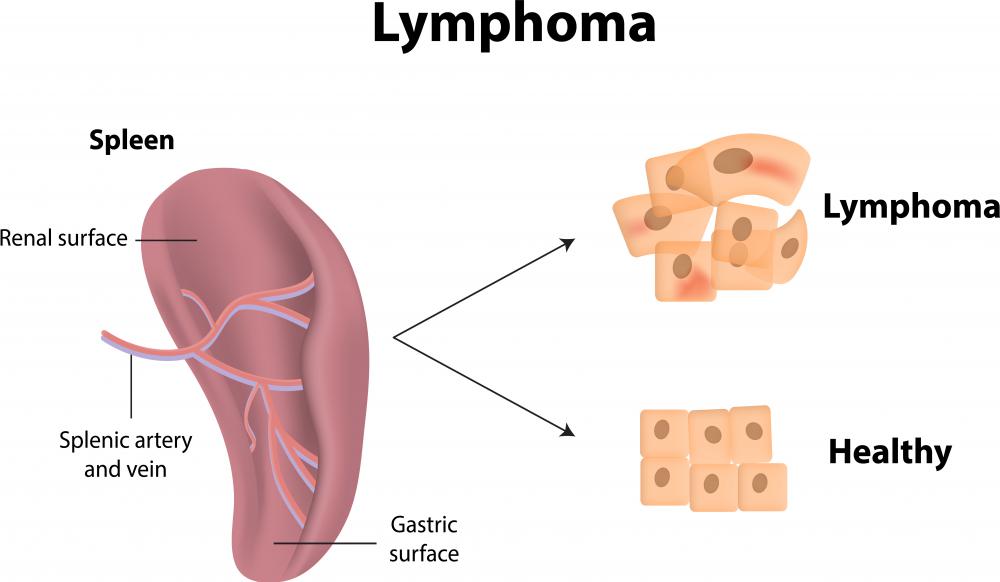At WiseGEEK, we're committed to delivering accurate, trustworthy information. Our expert-authored content is rigorously fact-checked and sourced from credible authorities. Discover how we uphold the highest standards in providing you with reliable knowledge.
What is Graft Versus Host Disease?
Graft versus host disease (GVHD) is a medical condition that can occur as a complication of a bone marrow transplant. Marrow contains stem cells, which create the blood cells in the body. Bone marrow transplants may be done to treat certain types of cancer, such as leukemia and lymphoma. Transplants help replace bone marrow in a patient’s body, which was not working correctly due to a disease.
There are two types of transplants. One is done by harvesting stem cells from a patient’s own bone marrow, after high-dose chemotherapy has killed the cancer cells. A second type of bone marrow transplant involves using donor cells from another person, which are transplanted into the patient. In this type of transplant graft versus host disease can occur.

The goal of a bone marrow transplant is for the stem cells to engraft in the patient’s immune system. This means the donor’s immune system replaces the patient’s own immune system. When graft versus host disease occurs, the immune system of the patient does not accept the marrow and the body begins to attack itself.
It is not completely understood why GVHD disease occurs in certain people. Compatibility of the donor marrow with the patient plays a large role in whether the patient will develop complications post transplant. Many cases of GVHD are mild, while others can cause serious problems and possibly be fatal.

When symptoms start within the first 100 days after transplant, it is known as acute GVHD. If symptoms start after that, the condition is known as chronic GVHD. Symptoms of the acute form of the disease include, a skin rash, stomach problems, including severe diarrhea and liver failure. In chronic GVHD, any organ in the body can be involved. Symptoms often include, dry eyes and skin, stomach cramps and hair loss.

The usual treatment for graft versus host disease is steroids. They help suppress the immune system and may make the body stop attacking itself. It’s essential the right dose is given to treat the symptoms, without completely killing the new bone marrow. Other medications may be given to treat pain and infections.
Some people with graft versus host disease respond quickly to treatment. The prognosis depends partly on what organs are involved. Other factors affecting outcome include, the patient’s age, the severity of symptoms and how soon treatment started.

Although not all cases of graft versus host disease can be prevented, there are some things which reduce the chances of a patient developing the condition. The closer the tissue match between donor and recipient, the lower the chances of developing the disease. Siblings donors are often the closest match and should be used if possible.
AS FEATURED ON:
AS FEATURED ON:














Discuss this Article
Post your comments